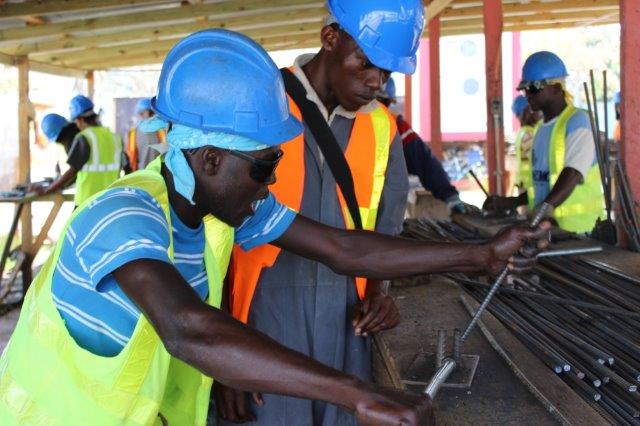CEOs Talk Shop – Four sustainable investments to tackle business challenges

 As an Accenture study found, 78% of CEOs surveyed from more than 100 countries see sustainability as an opportunity for growth and innovation.
As an Accenture study found, 78% of CEOs surveyed from more than 100 countries see sustainability as an opportunity for growth and innovation.
In this spirit, the IDB hosted a panel on sustainable business performance with CEOs and top executives.
As moderator, I probed our panelists to “talk shop” about how investing in shared value, gender equity and clean energy have contributed to overcoming common business challenges.
Four themes emerged from sustainable investments:
- To Scale up Growth – Invest in Shared Value
Many companies that depend on supply chains and outsourced labor will agree: finding opportunities to increase financial returns for company and local community can be elusive, but is essential for growth. The sweet spot where the two intersect is more and more commonly referred to as creating shared value, a term coined by professors from Harvard Business School and is an approach now engaged by large corporates such as Nestle, Walmart and Coca-Cola. During the panel, CEO Eduardo Bastitta of Plaza Logistica, a midsize Argentine logistics park operator, said that roughly 80% of the logistics workforce his company depends upon is unskilled. Through IDB’s Shared Value Appraisal, Plaza Logistica is investing in a training center to increase financial sustainability for Plaza Logistica by improving the quality of its services to clients while empowering youth and women with sought after skills in the logistics sector.
Similarly, fellow panelist Andrew O’Brian, CEO of Quiport in Ecuador, is turning airport waste management – a typical cost center in operations – into a business opportunity. IDB’s engagement appraised the value proposition of creating a local waste company through a socially inclusive business model to undertake the collection, recycling and reuse of the waste, and convert it into business opportunities such as the processing of sludge and other organic waste into composting for fertilizer in the local agriculture.
- To Lower Electricity Costs – Invest in Clean Energy
High electricity costs are a concern for many companies operating in Central America. For some, it represents one of the largest operating costs. This is true for Honduran recycling company Invema. CEO George Gatlin, who has been operating in San Pedro de Sula for 20 years, wants to scale up his operations by processing plastic made from soft drink bottles into a food-grade pellet that can be turned into bottles again. This would greatly increase the company’s value proposition for exports – and its energy use. Following an IDB Energy Appraisal, Invema is now investing in self-supply renewable energy and represents one of the first companies to invest in rooftop solar panels in Latin America. The investment will cut Invema’s monthly electric bill by 20% and will pay for itself in five years. It also will produce 1 MW of clean energy and reduce 20,000 tons of greenhouse gas emissions over 25 years.
- To Reduce Workforce Attrition – Invest in Your People
Latin America and the Caribbean have a retention problem. According to a 2013 Radford survey, the region has the highest voluntary turnover rates worldwide at 11.2% compared to 7.9% in Europe. Depending on the industry, this has many implications that constrain business growth and reduce productivity. During the panel, Marriott International Vice-president for the Caribbean Andrew Houghton said that investing in employees is central to Marriott’s sustainability strategy: “If we take good care of our employees, they take care of our customers.” In Jamaica, Houghton discussed how through collaboration with IDB, Marriott is engaging at-risk youth in the construction and operation of a new business hotel in the heart of Kingston. When the hotel opens in August, it will employ 10% at-risk youth. Training these employees will contribute to lower crime rates, a safer environment for tourists and business travelers, and greater employee loyalty.
- To Stay Ahead of the Competition – Invest in Gender Equity
Why does gender equity matter for business? According to a Deloitte study, companies with more women on their corporate boards outperform those with fewer women by at least 53%. On the panel, EDGE Strategy Co-founder Aniela Unguresan told this illustrative story. While 90% of women drivers carry a purse, cars don’t take into account a space for said purse – and more than likely its contents end up on the floor. When the CEO of a car company wondered why his cars didn’t take into account this large segment of the customer base, he found that his design team was all men. For Unguresan, this example illustrates why it’s important to have gender equity. A workplace that mirrors society will help companies stay competitive. Houghton echoed this idea and spoke about the platform for gender certification that Marriott is pursuing with the IDB and EDGE Strategy in Costa Rica. For him, having a third-party like EDGE benchmark performance against other tourism operators allows Marriott to stay ahead of the competition.
All panelists agreed that measurement is essential to the success of any sustainable investment. I look forward to following these investments and seeing how they translate into higher financial returns for the companies and greater development impact for our region.
LIKE WHAT YOU JUST READ?
Subscribe to our mailing list to stay informed on the latest IDB Invest news, blog posts, upcoming events, and to learn more about specific areas of interest.
Subscribe


